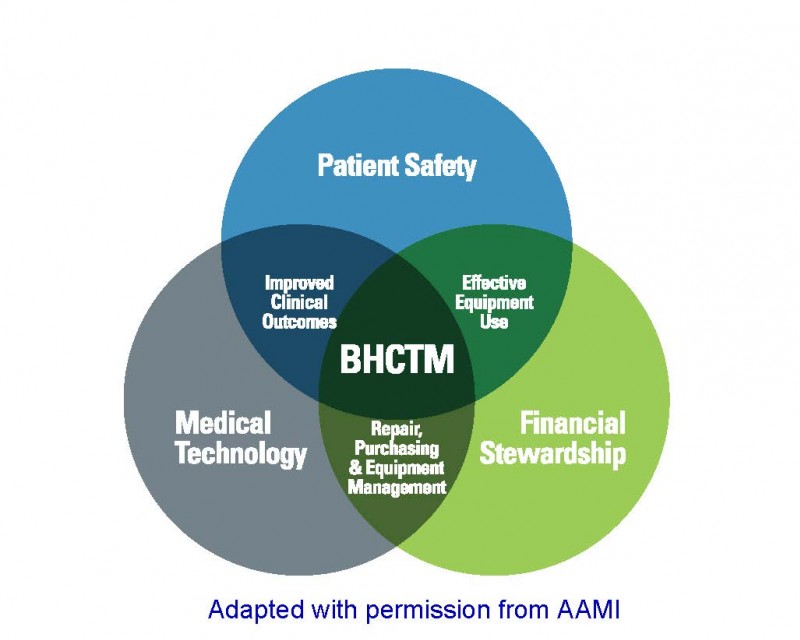What is Health Care Technology Management?
Health Care Technology Management (HCTM) address an identified need in the health care sector for professionals with a hybrid skill set that includes expertise in medical technology, life sciences and business practices.

Careers in HCTM
Health care technology managers work with administrators, clinicians and other health care professionals. They advise on innovative medical technology planning, purchasing and installation while ensuring the safe and effective use of medical technologies to enhance patient outcomes and organizational goals. Health care technology managers are also charged with aligning an organization's strategic technology plan and clinical objectives to ensure the optimal balance of positive patient outcomes and the availability of cost-effective technology.
Health care technology managers serve as the primary contact between clinical, business and support departments as well as the biomedical engineering technology department. These professionals lead and manage the biomedical engineering technology teams in support of their organization and are responsible for developing, directing, organizing and managing overall operations and distribution of resources (e.g. staffing, budgets and outside vendor services).

Other HCTM career options include:
- Medical equipment planner
- Clinical or biomedical equipment specialist
- Project engineer
- Consultant
- Strategic technology planning lead
- Capital equipment procurement specialist
- Manager of biomedical engineering technology
- Medical technology assessment specialist
- Biomedical technology science writer
- Onsite medical technology manager
- Regulatory compliance officer
- Service Manager
The following are examples of common HCTM job responsibilities:
- Review, audit and participate in decision-making and support activities related to problem diagnosis, repair, preventive maintenance and quality assurance of patient care and other biomedical equipment.
- Participate in the development of annual goals and objectives related to supporting the growth and development of services in response to the biomedical equipment support needs of the organization.
- Manage the performance of direct reports including work assignments, goal setting and annual reviews, time and attendance, salary administration, etc.
- Meet regularly with department supervisors to review previous work completion data, future scheduled work assignments, quality assurance issues, new biomedical equipment inspections and any other projects or equipment support needs.
- Work with department supervisors and clinical engineers on projects related to new biomedical equipment acquisition, installation, renovation, modification or removal. May directly over see the progress and status of such projects.
- Determine training needs for staff technicians and engineers and recommend/implement arrangements as needed to obtain necessary training, test biomedical equipment and tools needed to expand the areas of technical services provided by the departments.
- Research emerging technology trends and develop relationships with vendors to stay current with latest medical technologies.
- Evaluate existing medical equipment and related systems with respect to age, condition and technological status to determine the potential for reuse.
- Conduct user group meetings to determine and verify medical equipment needs.
- Effectively communicate equipment-planning information to project teams to ensure successful project completion.
- Manage and participate on multiple projects simultaneously.
The following are examples of common HCTM workplaces:
- Hospitals, clinics and health networks
- Independent service providers
- Medical equipment manufacturers
- Medical laboratories
- Government departments/agencies and regulatory authorities
- Technical sales and support
HCTM Education
The minimum standard for HCTM educational qualifications is an honours degree (four-year post-secondary program), such as the Honours Bachelor of Health Care Technology Management.
Qualified graduates may go on to continue their education at a Master's level.